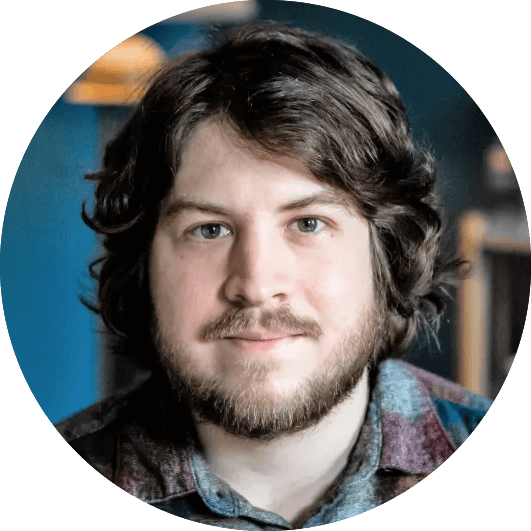Set your team up for success with valuable insights and predictions from media industry veterans.
The nature of collaboration has undergone many changes over the past few years. Remote and hybrid teams are more common than ever, new tools allow us to communicate better and streamline our workflows, and emerging technologies like artificial intelligence present a mix of opportunities and challenges.
In this video, PSE’s Jeremy Siegel is joined by industry veterans Kirk Wheeler and Paul Nicholson for a round-table conversation about building an effective team, adapting to the pace of change, and preparing for what may come in 2025.
Free Guide: Top Tools for Creative Teams in 2025
Is your team taking full advantage of the best tools available? Check out our Top Tools for Creative Teams in 2025, in which we’ve put together a list of some of our favorite software and hardware solutions to help you kick off your most productive year yet. Our free guide covers tools in these areas these areas and more:
- AI Tools
- Remote Collaboration
- Media Storage and Management
- Audio Plugins
- Dialogue Editing and Sync
Whether you’re a production manager in charge of a video team, a creative director at an advertising agency, or any kind of team that works in creative media, elevate your performance with these essential tools & resources.
Content:
0:00 - Introductions
PSE Director of Strategic Partnerships, Jeremy Siegel, starts by introducing his guests.
Kirk Wheeler is the Senior Manager of Recording Operations at LinkedIn. “I didn’t start off dreaming of being a manager,” he says. “I fell in love with sound and audio at a young age.” Formerly a mixer at a post-production house, Kirk stepped into management as his team grew larger, which led to his current role at LinkedIn.
Paul Nicholson is a consultant who previously spent 18 years in Showtime’s Creative Operations department. Paul pursued music from a young age, until he “Had this epiphany at some point that I just didn’t want to be a starving musician.” Paul left college to become a recording engineer, then moved into graphic design and advertising before landing at Showtime.
Jeremy followed a similar path, starting as a musician (he still plays out once in a blue moon) before going back to school and eventually starting at Pro Sound Effects as a Licensing Manager. Jeremy sums up this topic by paraphrasing a Steve Jobs quote: “You know who the best managers are? They’re the great individual contributors who never, ever want to be a manager, but decide they want to be a manager, because no one else is going to be able to do as good a job as them.”
05:32 - Characteristics of high-performance audio team
Asked what makes a high-performance team, Paul and Kirk identify several important aspects:
- A diversity of skills and backgrounds
- Transparency in the collaborative process
- Exchange of ideas between disciplines such as audio and video
- Trust among team members and freedom to speak one’s mind
- Positive reinforcement and celebrating wins
Kirk recommends the book Drive by Dan Pink, which taught him the value of autonomy, mastery, and purpose. Paul recommends Zapp! The Lightning of Empowerment by William Byham.
10:29 - Setting goals
Jeremy asks whether setting the right types of goals can set a team up for wins.
“I’m big into goal-setting myself,” says Paul. “Personal goals, departmental and business goals.” He praises Showtime’s goal-setting practices and talks about the importance of reporting your successes to management. “If you forecast out what you’re trying to accomplish, and then you’ve actually accomplished that, you can take that up the ladder and make sure that senior-level people know about all that success.”
12:07 - What has changed for teams working in audio and media?
Kirk cites artificial intelligence as the biggest change in 2024. “We’re definitely in a time of disruption and massive change for this whole industry,” he says. “With any change, there’s always a lot of fear, but there’s also tons of opportunity.”
AI’s impact:
- The number of AI tools available is exploding
- AI is eliminating tedious tasks such as taking meeting notes and summarizing content
- Small developers are creating advanced audio tools without the bottlenecks of a larger software company
- Content is changing (more focus on YouTube and social media vs. traditional media)
Other industry changes:
- Media businesses have consolidated post-pandemic
- Studios are downsizing and figuring out new ways to work
- People are struggling for work
- The market has been saturated with content, affecting consumer demand
17:36 - The role of AI in media production
On the topic of AI, Kirk is cautiously optimistic. “On the automation front, we’re building a lot of pipelines, but we’re also being really cautious on some of the newer tools in production specifically,” he says. Kirk stresses the importance of disclosing the use of AI in products, including generative tools like Adobe Firefly and Eleven Labs.
Jeremy adds that some larger companies are developing their own AI-powered tools exclusively for in-house use, such as Paramount’s proprietary asset management system. Paul agrees, adding, “There’s a huge future in that; an immediate future in really bespoke tools for your business and your use case.”
Paul specifies that generative AI isn’t being used often in actual production, partially because big brands and their lawyers are apprehensive about the legal implications. Instead, the majority of tools are being used for concepting, ideation, and automation. “Speeding up your creativity; I think that’s where there’s huge gains,” adds Kirk.
22:53 - AI and creativity
“Now you have something that is just on the fly, as fast as you can type thoughts out,” Jeremy says about AI. “Is that the biggest innovation in creativity that we’ve seen in our generation?”
“We haven’t yet scratched the surface on what this thing is capable of, but I don’t think it’s going to replace humans,” says Paul. “Creativity is such a human talent, I’m not sure we’ll ever get there with machines.”
“Story and craft are always going to be really, really important,” adds Kirk. “the intention of what you’re trying to make, the emotion you’re trying to share, is what’s going to be really relevant and I don’t think that’s going to change.”
“It’s still going to take masters of craft and masters of creativity to make the content that people are going to want to engage with,” Jeremy says. “If you come off as anything but sincere, that’s just going to hurt engagement and ultimately not land the message.”
30:38 - Trends and challenges for 2025
“What are the biggest trends that managers are keeping in mind for 2025?” Jeremy asks the panel. “What are the biggest challenges that you’re hoping to be able to solve next year?"
Paul:
- Managing hybrid and remote teams
- Collaborating with other teams who do things differently
- Some companies are moving operations in-house while others are embracing collaboration
Kirk:
- Mentorship and collaboration in remote settings
- Navigating the pace of change and managing expectations
- Staying grounded in a sense of purpose
Jeremy:
- Work-life balance
- Sharing information between management and team members
- Weaving communication into the fabric of the company
39:26 - Parting thoughts
To wrap up, Jeremy asks the panel for one thing they wish they had known at the beginning of 2024.
“My life has changed pretty dramatically professionally,” says Paul. “I wish I would have told myself then, ‘Relax, it’s all going to be for the right reasons and all the right things; you’re going to find your path.’”
Kirk says that he underestimated the pace of change. “The thing I would say – and I would tell myself again in ‘25, ‘26, and 2074 – is ‘Change is the only constant,” he says. “I would just remind myself and ground myself in that. It goes a long way.”











